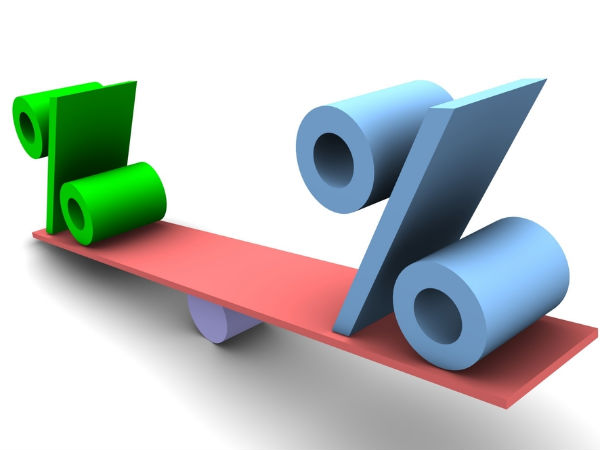List Of Private Sector Banks Providing Up To 6.75% Interest Rate On 2-3 Year FDs
As opposed to stocks, mutual funds or equities, fixed deposits, also classified as term deposits, are the most lauded investment alternative since the return received from a bank FD at the time of making the investment is defined and specified to the depositor. This investment vehicle issued by banks or NBFCs provides depositors with a higher interest rate than a standard savings account as well. Due to guaranteed returns, high liquidity and ease of investing, Fixed Deposits are one of the most common financial products among risk-averse investors. Below are the private banks that currently give the best interest rates on 2-3 year FDs for an amount below Rs 2 Cr.

Key benefits of investing in fixed deposits
The following aspects illustrate the benefits of investing in a fixed deposit scheme that one can appreciate:
- Return on a fixed deposit can be measured as the rate of interest is fixed at the time of investing. Since one can quickly measure the maturity amount, this results in improved personal finance of an investor.
- It is possible to open a fixed deposit for a short, medium and long term duration. Banks, including NBFCs, offer flexible maturity options spanning from 7 days to 10 years.
- DICGC supports the depositor with a cover of Rs. 5 lakh for those who have FD in a recognized bank in India, in the event of bankruptcy.
- Depositors can cite the contributions made in a financial year as exemptions when filing the Income Tax Return of up to Rs. 1.5 lakh in a fiscal year when investing in a 5-year tax saving FD.
- Favourable additional FD interest rates above the regular fixed deposit interest rates are provided to senior citizens over 60 years of age. This can vary from 0.25 to about 0.65 percent in general.

Eligibility criteria
It is reasonably necessary to know who can open a fixed deposit account in order to amass the benefits mentioned above. The category of those (may vary from bank to bank) that are liable for a fixed deposit investment is given below.
- Indian residents with a minimum age limit of 18 years
- Hindu Undivided Family (HUF)
- Corporations or sole proprietorships, partnership companies
- Trust Accounts
Documents required
Across all banks and/or non-banking financial companies, the documents needed while applying for FD are listed below:
- Identity proof: Passport, Aadhaar Card, PAN card, Voter ID Card, Driving licence, Government ID card, Ration Card, Senior citizen ID card, passport size photographs
- Address proof: Passport, telephone bill, electricity bill, bank statement with cheque
- Income proof: Salary slip of the last 3 months, bank account statement for the last 3 months

Tax deduction on FD
Fixed deposits also enable depositors to claim deductions under section 80C of the Income Tax Act, 1961. Resident citizens or Hindu Undivided Families (HUFs) who have deposited in a tax-saving FD are allowed to claim a deduction of up to Rs. 1.5 lakh in a financial year. Tax-saving fixed deposit schemes, though allow tax advantages, this implies that while the initial amount of the deposit is qualified as a deduction of u/s 80C, the interest income is not free from taxation. At your tax slab rate, FD Interest is taxable including relevant surcharge/cess. If the interest amount for the entire financial year surpasses Rs 10,000 for AY 2019-20, the TDS rate on fixed deposits (FDs) is 10 per cent. This TDS deduction cap on FD is raised to Rs. 40,000 annually in the budget speech 2019, which is effective in AY 2020-21. The TDS limit on fixed deposit interest is 20 per cent under current income tax laws if you do not support the bank with your PAN Card.

How to receive higher returns from fixed deposits?
In order to gain better returns on their investments, after risk estimation, investors should consider parking their funds in the below-listed private sector bank FDs. Instead of investing all in a single FD and attempting to reinvest it after maturity, if possible, to create an accumulation pattern, they can opt for the laddering strategy to optimise FD returns. Investors can reap from any higher interest rate investments in the future by this strategy. It is possible to keep their savings even more liquid as it will eliminate the risk of needing to pre-close an FD before maturity to satisfy any unforeseen necessity after sacrificing interest amount. Interesting to note here is that FD laddering doesn't mean you are putting your entire amount in the same bank in multiple FDs. You must have multiple tenure FDs in various banks to avoid risk. Investment allocation across various FDs across different maturities reduces the risk of interest rates and deposit tenure. In the recent past, though, fixed deposits have weakened their appeal after the Reserve Bank of India cut repo rates by 115 basis points to boost the pandemic-hit country. Although the market is under some higher inflation strain and the financial sector has begun to rebound, few analysts say that the cheapest interest rate outcome will not be continued and FD rates may increase in the foreseeable term.

2-3 Year FD Rates
| Banks | 2-3 Year FD Rates In % For Non-Senior Citizens | 2-3 Year FD Rates In % For Senior Citizens |
|---|---|---|
| IDFC First Bank | 4.5 | 5 |
| Kotak Bank | 5 | 5.15 |
| HDFC Bank | 5.15 | 5.65 |
| ICICI Bank | 5.15 | 5.65 |
| J&K Bank | 5.2 | 5.7 |
| Federal Bank | 5.35 | 5.85 |
| Axis Bank | 5.4 | 5.9 |
| Dhanlaxmi Bank | 5.4 | 5.9 |
| South Indian Bank | 5.4 | 5.9 |
| Karur Vysya Bank | 5.5 | 6 |
| Karnataka Bank | 5.55 | 5.95 |
| Tamilnad Mercantile Bank | 5.65 | 6.15 |
| Bandhan Bank | 5.75 | 6.5 |
| City Union Bank | 5.75 | 6.25 |
| TNSC Bank | 5.85 | 6.35 |
| IndusInd Bank | 6.5 | 7 |
| RBL Bank | 6.5 | 7 |
| Yes Bank | 6.5 | 7 |
| DCB Bank | 6.75 | 7.25 |
































